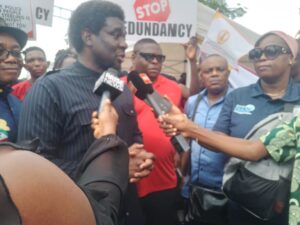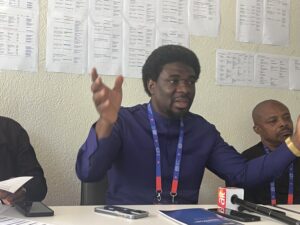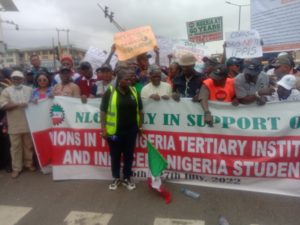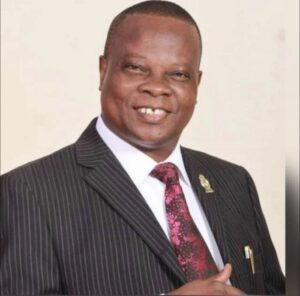Government policies implementation must align with industry realities – Peters Adeyemi, PSI Vice President
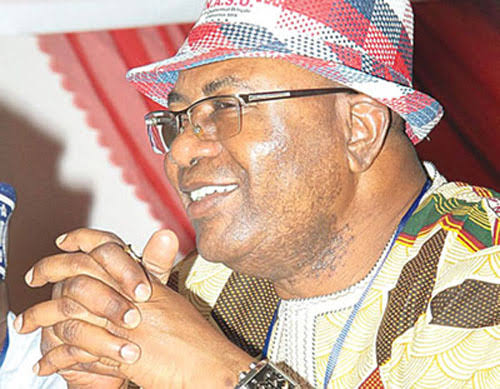
For sustainable development and economic advancement that will trickle down to the people and lift the country out of economic quagmire, Government policies should of importance be co-created with the private sector to ensure that implementation aligns with industry realities and market readiness.
According to Peter Adeyemi, President of Africa and Arab Countries Public Services International (PSI), a global trade union federation representing 20 million working women and men as well as General Secretary of the Non-Academic Staff Union of Nigerian Universities (NASU), in this incisive interview with Daily Sun at the just concluded International Labour Conference (ILC) in Geneva, Switzerland the federal, states and local governments forming long-term partnerships with the private sector, international partners, including donors, can help support capacity building, financing social programmes, and mitigating the impact of economic shocks through ensuring that states economic fragility does not escalate into a national crisis.
“No single policy guarantees success, instead, the three tiers of government, federal, states and local government focusing on a package of measures to build inclusive institutions, maintain economic stability, and seize key opportunities for reform are far more likely to succeed”.
He noted that advancing provision for enhancing institutions, improving governance, strengthening public engagement, and building international partnerships are critical to fully harness the associated value, which includes improved livelihoods through increased income; job creation opportunities, and a boost in government revenue through payment of tax.
“Federal Government restoring macroeconomic stability by strengthening fiscal institutions and improving public financial management is urgently needed to rebuilding trust and improving governance as well as ensuring that revenues—particularly from natural resources—are managed responsibly,” he said.
He expressed that breaking through the harsh socioeconomic problems for the citizens of Nigeria and other third world countries requires transparency from the government, perseverance and adaptability, on the part of the governed.
He noted that while the nation’s economy managed to keep growing after the pandemic, albeit more faster than previously forecast by the World Bank, with inflation-adjusted income per person still, on average, below its 2019 level, the federal government ongoing reform policies have break free the economy from extinction by focusing on participatory governance, institutional reform, and economic diversification.
According to Adeyemi, the Africa’s President of Public Services International (PSI), enhancing institutions, improving governance, strengthening public engagement, and building international partnerships are critical to overcome fragility by the Federal Government of Nigeria.
“Nigeria can only transitioned out of extreme fragility by implementing sound macroeconomic policies, diversifying the economy, and strengthening institutions.
With strained budgets, vast development needs, and insufficient funding, Adeyemi said: “Federal Government restoring macroeconomic stability by strengthening fiscal institutions and improving public financial management is urgently needed to rebuilding trust and improving governance as well as ensuring that revenues—particularly from natural resources—are managed responsibly”.
Adeyemi specifically said: “Enormous economic and social benefits are associated with creating opportunities for broader public engagement and ensuring a fairer allocation of resources to ultimately strengthen social unity and resilience.“
Reform
Adeyemi, who embodies a rare blend of unyielding patriotism, labour activism, and commitment to economic justice, said:
“Nigeria requires locally relevant and inclusive environmental reforms, and so, the government must be wary of adopting external policy frameworks without indigenous contextual adaptation”.
The President of PSI as well as General Secretary NASU, noted that countries that curb corruption, strengthen institutions, and promote political participation are more likely to mitigate economic fragility.
He said indeed, past lessons offer hope. Noting that Sierra Leone after its 2002 civil war, sought to prioritise rebuilding infrastructure and public services in education and health care, while Liberia, after four years of civil war ended in 2003, strengthened core institutions and reduced reliance on extractive industries, stating that both nations used pivotal moments to reset societal expectations, rebuild trust, and set a new course.
Adeyemi’s journey through Nigeria’s often chaotic socio-economic landscape has not been one of mere rhetoric, but of action deeply rooted in service, integrity, and passion for the betterment of Nigeria.
In every public engagement, whether locally or internationally, Adeyemi has made the Nigerian economy and its workers the centerpiece of his advocacy.
At a time when most public figures prefer not to rock the boat, Adeyemi has continued to challenge the status quo, particularly the government’s lukewarm approach to labour rights and minimum wage implementation. His activism gained fresh relevance in the face of Nigeria’s economic instability, rising inflation, and a wage system many describe as modern-day slavery.
He understands what many in power often ignore: that no economy can thrive when its workforce is impoverished and demoralised.
In pushing for improved wages and better working conditions, he is not just fighting for labour; he is advocating for a healthier, more sustainable economy.
“Workers who are well-paid and protected are more productive, and their improved purchasing power stimulates economic growth,” he said.
His persistent calls for a realistic national minimum wage are therefore not just economic arguments but patriotic demands for equity. For Adeyemi, patriotism is not flag-waving and hollow speeches; it is rooted in justice, fairness, and a refusal to accept a system that continues to fail the very people who oil its wheels.
PSI
As President of PSI for Africa and the Arab countries, Adeyemi’s influence transcends Nigeria. Yet, even on international platforms, he remains grounded in Nigerian realities.
At various PSI conferences, he has spotlighted Nigeria’s crises, privatisation of public services, underfunding of education, and suppression of union leaders.
His reaction to the harassment of Nigeria Labour Congress (NLC) President Joe Ajaero sometime ago underscored his zero-tolerance for tyranny and abuse of power.
“Trade unionism is not a crime. You cannot arrest and brutalise someone for defending workers,” he said.
In a political climate where dissent is often crushed, such a stance is not only courageous but deeply patriotic. It affirms the belief that democracy cannot flourish without vibrant, independent labour unions.
Beyond wages and rights, Adeyemi has also focused on revitalising Nigeria’s public service sector, especially education.
As General Secretary of NASU, he has been instrumental in pressing for improved funding for tertiary institutions. He believes that a robust education system is the bedrock of any thriving economy.
Through NASU, he has fought tirelessly against poor working conditions for non-academic staff and lopsided reforms that neglect their critical role in university administration. By placing the spotlight on often overlooked categories of workers, Adeyemi has widened the discourse on inclusive development.
His advocacy has also extended to campaign for the training and retraining of public service workers to adapt to emerging technological changes.
He maintains that Nigeria must not be left behind in the fourth industrial revolution and that investing in human capital is the most patriotic thing a government can do.
The vibrant labour leader has led protests, negotiated with governments, and mobilised support across various sectors to demand what is right. His leadership style is consultative, firm, and principled.
Colleagues often describe him as someone who will not trade truth for comfort. A comrade who listens to junior members of his union with the same respect he accords presidents and ministers displaying the spirit of servant-leadership that Nigeria sorely needs across all sectors.
For Peter Adeyemi, economic justice is the foundation of patriotism. He has redefined what it means to be a nationalist in contemporary Nigeria. Not through empty chants or political allegiance, but by defending the interests of the people, particularly the marginalized.
His consistent stand against anti-people policies, from arbitrary removal of subsidies to non-payment of pensions and poor wage systems, makes him a beacon of hope for a country desperate for leaders who genuinely care.
Even when it is unfashionable, Adeyemi has spoken against the elitist concentration of wealth and advocated for redistribution mechanisms that empower ordinary Nigerians. This includes calling for progressive taxation, investment in rural economies, and stronger social security systems.
Describing Peter Adeyemi, members of NASU said he is not just a trade union, but a patriot in the truest sense.
“He is A relentless voice for the voiceless. A builder of bridges between labour and leadership. And above all, a man whose passion for a better Nigeria burns too deeply to be extinguished by politics or pressure,” they stated.
